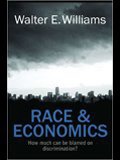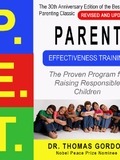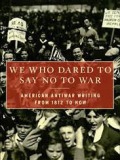Book

I, Pencil
The classic, short essay by Leonard E. Read remains one of the best introductions to the unseen complexity of the free market system. Read it for FREE at econlib.org
aboutLiberty Portal
Liberty Portal is your gateway for free markets and free thinking. We aggregate open-sourced content to promote and popularize important people and lessons within the liberty movement.
suggested
Walter Williams
Race and Economics

Walter E. Williams is one of the sharpest economic minds of his generation and this book is a must read for anyone interested in having an honest conversation about race.
Read more
Thomas Gordon
Parent Effectiveness Training (P.E.T.)

P.E.T. began over 45 years ago as the first national parent-training program to teach parents how to communicate more effectively with kids and offer step-by-step advice to resolving family conflict so everybody wins. This beloved classic is the most studied, highly-praised, and proven parenting program in the world -and it will for you.
Read moreThis ground-breaking book will show you:
- How to avoid being a permissive parent.
- How to listen so kids will talk to you and talk so kids will listen to you.
- How to teach your children to "own" their problems and to solve them.
- How to use the "No-Lose" method to resolve conflicts.Using the timeless methods of P.E.T. will have immediate results: less fighting, fewer tantrums and lies, no need for punishment. Whether you have a toddler striking out for independence or a teenager who has already started rebelling, you'll find P.E.T. a compassionate, effective way to instill responsibility and create a nurturing family environment in which your children will thrive.
Murray Polner & Tom Woods
We Who Dared to Say No to War: American Antiwar Writing from 1812 to Now

We Who Dared to Say No to War uncovers some of the forgotten but compelling body of work from the American antiwar tradition—speeches, articles, poetry, book excerpts, political cartoons, and more—from people throughout our history who have opposed war. Beginning with the War of 1812, these selections cover every major American war up to the present and come from both the left and the right, from religious and secular viewpoints. There are many surprises, including a forgotten letter from a Christian theologian urging Confederate President Jefferson Davis to exempt Christians from the draft and a speech by Abraham Lincoln opposing the 1848 Mexican War. Among others, Daniel Webster, Mark Twain, Andrew Carnegie, Grover Cleveland, Eugene Debs, Robert Taft, Paul Craig Roberts, Patrick Buchanan, and Country Joe and the Fish make an appearance. This first-ever anthology of American antiwar writing offers the full range of the subject's richness and variety.
Read more


